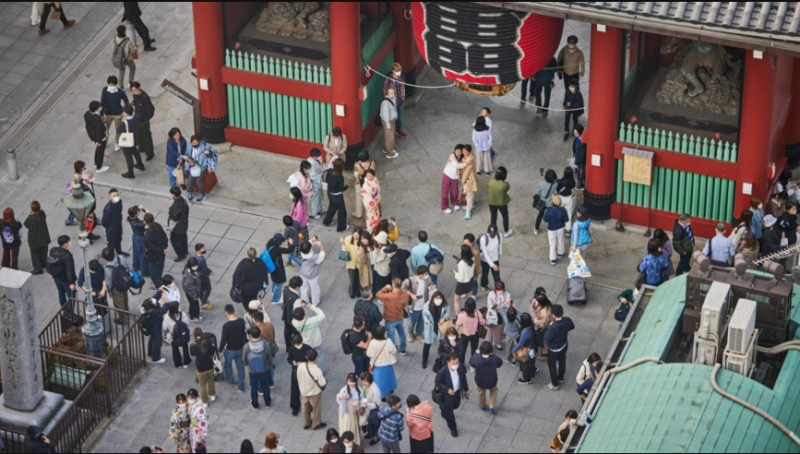
Tokyo: Data revealed that in March, consumer inflation in Japan remained above the central bank's target while an index that excludes fuel costs rose at the fastest annual rate in four decades, pointing to broader price pressure in the third-largest economy in the world.
The information may maintain market expectations that the Bank of Japan (BOJ) will start winding down its massive stimulus programme later this year. This programme has come under fire from critics for distorting the bond market and eroding financial institutions' margins.
According to Shinke Yoshiki, chief economist at Dai-ichi Life Research Institute, inflationary pressure is proving to be more intense than anticipated and may last longer than initially thought.
However, there is still a lot of doubt about whether wages will increase steadily and support consumption, which could keep the BOJ in a holding pattern.
Government data showed on Friday that the core consumer price index (CPI), which excludes volatile fresh food but includes energy costs, increased 3.1% from a year earlier in March. This was in line with the median market forecast.
It came after February's increase of 3.1%, which was significantly slower than January's increase of 4.2%, a 41-year high, and was largely caused by government subsidies meant to reduce the price of utility bills for homes.
Also Read: Army Chief Burhan requests dialogue and de-escalation
The BOJ closely monitors an index that excludes the impact of both fresh food and energy as a better indicator of underlying price trends. In March, it increased by 3.8% from February's 3.5% and accelerated for the 10th consecutive month.
The so-called "core core" index experienced its fastest yearly growth since December 1981, when Japan was going through a bubble economy caused by asset inflation.
Also Read: 5.4 tonnes of cannabis and a haul of cocaine are seized in Morocco
Government subsidies helped to keep utility costs low, but the cost of various food and daily necessities increased, as evidenced by the 12% price increase in fried chicken and the 18% price increase in laundry detergent.
Restaurants charged 7.6% more in March than they did a year earlier, which was faster than the 1.5% increase in February in the price of services.